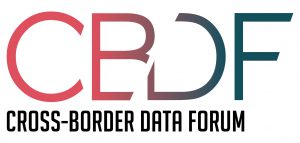This paper was originally published by the Atlantic Council and is being made available here with permission of same.
In a major policy shift, the U.S. government is imposing restrictions on certain transfers of personal data to specified authoritarian countries, including Russia and China. The European Union has long had controls on international data flows, through the mechanisms of the General Data Protection Regulation (GDPR). Data transfers from the EU to the United States have come in for close scrutiny, due to U.S. foreign intelligence surveillance activities, but there has been no systematic attention in Europe to data flowing to authoritarian states.
Will Washington’s new focus on data transfers to authoritarian states have an impact in Europe? Will Europe continue to pay more attention to the surveillance activities of its liberal democratic allies, especially the United States? Is there a prospect of Europe and the United States aligning on the national security risks of transfers to authoritarian countries?
Who’s a National Security Risk? The Changing Transatlantic Geopolitics of Data Transfers
by Kenneth Propp
To read the original paper on the Atlantic Council, click here.
These statements are attributable only to the author, and their publication here does not necessarily reflect the view of the Cross-Border Data Forum or any participating individuals or organizations.

